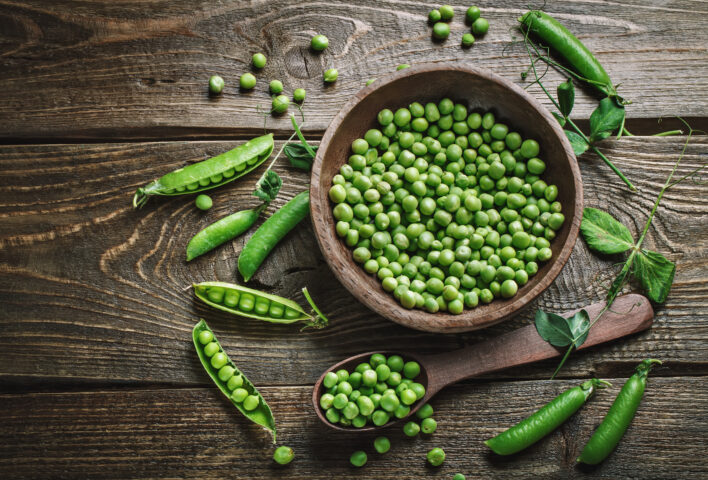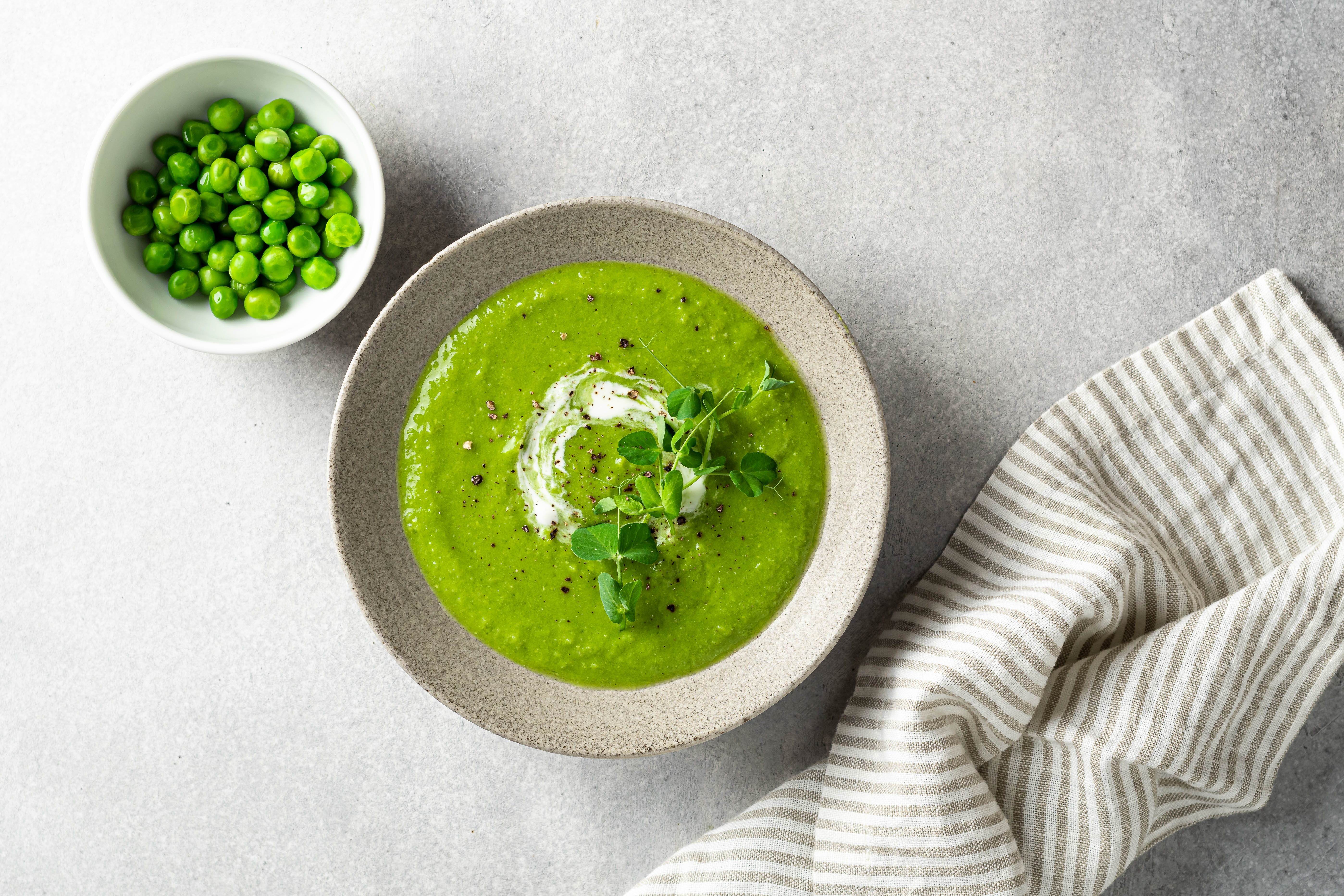The Humble Garden Pea
It is Great British Pea Week July 7th – 13th and here we celebrate these little green nutritious and very versatile vegetables. We also hear from Sam, our Head of COOK! about the many uses of peas (and there are recipeas!)

Let’s hear it for the humble garden pea!
Why should people in the UK consider eating more green peas – and for that matter more broad beans (also known as fava beans)?
Increasing numbers of people are looking to cut down on meat and swap out for healthy, wholefood plant-based proteins, such as beans and peas. And there is an ever expanding range available on supermarket shelves – black beans, pinto beans, kidney beans, chickpeas, the list goes on!
And yet when it comes to health, environment and economics – there are a number of great reasons for choosing the humble garden pea and the somewhat ‘out of fashion’ broad bean.
In support of this years Great British Pea Week and the ‘Yes Peas’ campaign – we’ve broken down just why more shoppers should be adding these two fantastic foods to their shopping basket:
Environmentally Sustainable
- Low carbon footprint: Fava beans and peas are nitrogen-fixing legumes, meaning they improve soil health by naturally adding nitrogen, reducing the need for chemical fertilizers.
- Local production: Both can be grown in the UK climate, reducing the need for imported protein sources like soy.
- Less water use: Compared to animal protein and even many other crops, they require less water to grow.
Health Benefits
- High in protein: Especially valuable for plant-based diets. They’re a great source of plant protein.
- Rich in fibre: Aids digestion, helps manage cholesterol, and keeps you fuller for longer.
- Packed with nutrients: Contain iron, magnesium, potassium, and B vitamins, all important for heart and metabolic health.
Supports British Agriculture
- Encourages more sustainable UK farming.
- Reduces reliance on imported legumes (e.g., lentils, chickpeas, soy) and animal feed.
- Can diversify farmers’ crop rotations and increase resilience in UK agriculture.
Alternative to Soy and Meat
- Fava beans and peas can be used in plant-based meat alternatives, reducing demand for soy and meat, which often come with higher environmental costs.
- They are increasingly used in British-made plant-based products (like pea protein burgers or fava bean snacks).
Culinary Versatility
- Can be used fresh, frozen, dried, or ground into flour.
- Great in soups, stews, dips (like mushy peas or fava bean hummus), or roasted as snacks.
They’re high in protein and fibre and low in sat fat, making them as healthy as they are delicious.

And a word from the Head of COOK!, Sam
Why I’m Always Banging on About Peas
If you’ve ever been to one of our cookery classes, you’ve probably heard one of our tutors say it: “Everyone should have a bag of frozen peas in their freezer.” And we mean it! Peas are one of the most underrated ingredients in the kitchen; British-grown, packed with protein, and endlessly versatile. They’re not just for the side of a Sunday roast (though they’re great there too).
At the cookery school, we use peas in everything from vibrant Mattar Paneer to zingy summer salads, crispy fritters, hearty soups, and comforting stews. They’re a brilliant way to add colour, texture, and a gentle sweetness to a dish, and they cook in minutes. Honestly, they’re a bit of a plant-based superhero.
What I love most is how accessible they are. A bag of frozen peas is cheap, lasts for ages, and turns even the simplest meal into somehing nourishing. We always encourage our students, especially those new to plant-based cooking, to think of peas as more than just a side. They’re a protein source in their own right, and they play so well with spices, herbs, citrus, and all sorts of other veg. We always make sure to shine a light on frozen peas when we run workshos as part of our funded community work. A lot of people don’t think of peas when they’re looking for to add protein to dishes. As soon as they are combined with grains, seeds, or other legumes, you’ve not only got balanced protein but a sustainable fibre-packed meal. At COOK! we often talk about protein diversity, getting your protein from a variety of sources, not just the one big lump on your plate. Peas are a quick win in that category.
So next time you’re staring into the fridge wondering what to make, remember the peas. They’re waiting patiently in the freezer, ready to save dinner. Just grab a handful and throw them in!
Here are a few recipes from our collection that use the humble pea!
